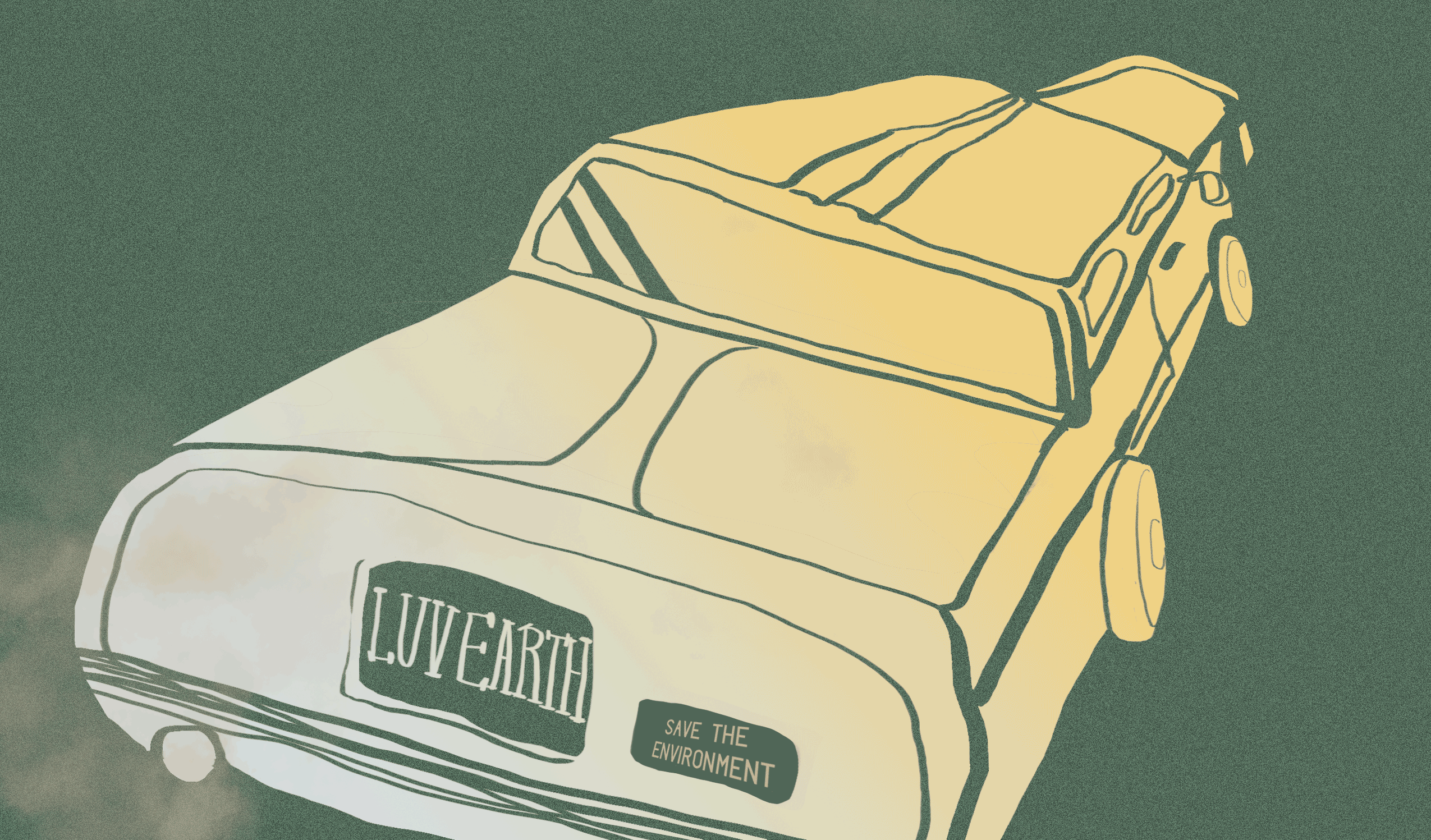The Green Hypocrisy
Promoting awareness does not equal environmentalism
We are insignificant.
In most regards, at least. According to NPR, modern humans have existed for barely 200,000 years: less than 0.005% of Earth’s history. But despite our species’ relative infancy, we have managed to make an impact. According to Smithsonian Magazine, human activity has left enough sedimentary deposits to create a new layer in sedimentary rock. This new geological era, called the Anthropocene, is marked by solidified carbon emissions and waste products produced in the Industrial Revolution.
Archeologists claim the Anthropocene is marked by mass extinctions, widespread climate change and ocean pollution. While it’s true that humans have exerted unmatched influence over the rest of the planet, this method of thinking is highly narcissistic and may ultimately be inhibiting our progress in limiting climate change. In seeing ourselves as “guardians” of Earth, we fail to recognize that climate change affects humans the most.
Forget those “save the planet” bumper stickers and tie-dye T-shirts. This planet doesn’t need saving — we do.
 By shifting environmental reform away from the general health of our planet and onto ourselves, it becomes obvious that humans have a vested interest in reversing climate change. Climate change isn’t simply an abstract scientific catastrophe set to blow up the planet in 2030. It’s a pressing concern, and affects our species on a daily basis.
By shifting environmental reform away from the general health of our planet and onto ourselves, it becomes obvious that humans have a vested interest in reversing climate change. Climate change isn’t simply an abstract scientific catastrophe set to blow up the planet in 2030. It’s a pressing concern, and affects our species on a daily basis.
But clearly, that’s not enough. We’ve taken the ecology unit in freshman biology and heard the pleas from Al Gore and Leonardo diCaprio on documentary after documentary. Compared to the rest of the country, our community is well aware of these imminent dangers. Many students recycle when possible, cut down on showers, and brush their teeth with the faucet off.
 Yet we refuse to cut back where it really matters. According to National Geographic, the most important steps individuals can take are often the hardest. Walking to school. Living in a smaller home. Going vegetarian.
Yet we refuse to cut back where it really matters. According to National Geographic, the most important steps individuals can take are often the hardest. Walking to school. Living in a smaller home. Going vegetarian.
Because, subconsciously, we realize none of climate change will affect us. And it’s probably true. According to the UN, those in poverty will suffer the most from climate change-related disasters. Meanwhile, Cupertino has an average household income that is almost triple the national average. Prices for gas and groceries may rise, but we’ll still be able to afford it. Next year may break records for the hottest year ever for the 17th year in a row, but there’s always air conditioning and insulated housing. So if there’s anyone to be last affected by climate change, it’s us.
Unfortunately, being last affected still means we’ll be affected. How much longer until our favorite acai bowls can’t be made? If the Sierra Mountains melt, how are we going to ski over break? Our climate change problems may be small, yes, but they’re still our problems. And unless we realize that climate change will directly impact our lives, things are going to get a lot worse.
So let’s start putting our efforts where it matters the most — before our species becomes just another rock layer.